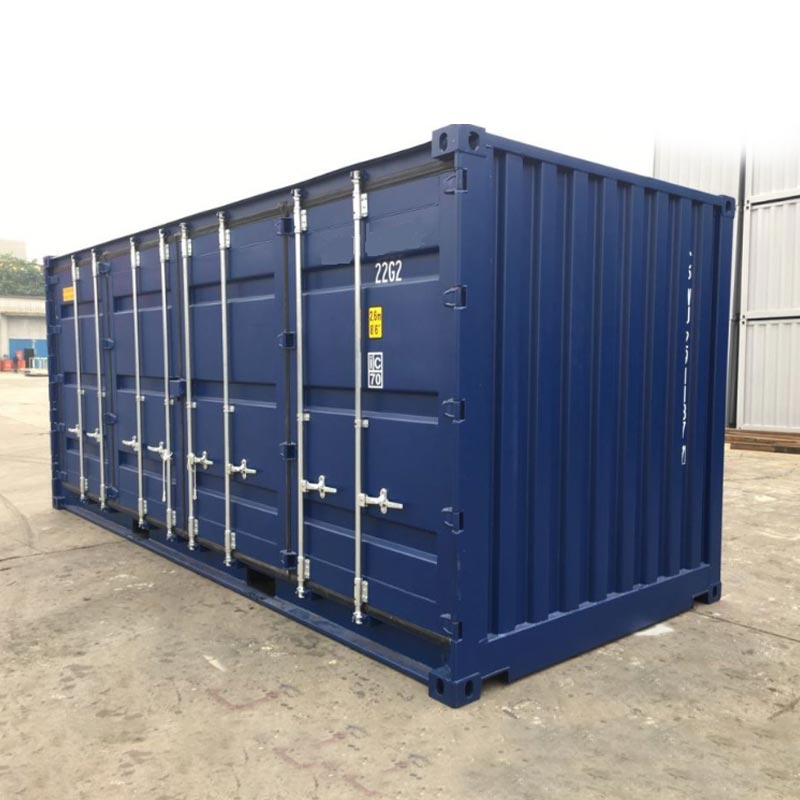
 English
English  简体中文
简体中文 Español
Español Português
Português русский
русский Français
Français 日本語
日本語 Deutsch
Deutsch tiếng Việt
tiếng Việt Italiano
Italiano Nederlands
Nederlands ภาษาไทย
ภาษาไทย Polski
Polski 한국어
한국어 Svenska
Svenska magyar
magyar Malay
Malay বাংলা ভাষার
বাংলা ভাষার Dansk
Dansk Suomi
Suomi हिन्दी
हिन्दी Pilipino
Pilipino Türkçe
Türkçe Gaeilge
Gaeilge العربية
العربية Indonesia
Indonesia Norsk
Norsk تمل
تمل český
český ελληνικά
ελληνικά український
український Javanese
Javanese فارسی
فارسی தமிழ்
தமிழ் తెలుగు
తెలుగు नेपाली
नेपाली Burmese
Burmese български
български ລາວ
ລາວ Latine
Latine Қазақша
Қазақша Euskal
Euskal Azərbaycan
Azərbaycan Slovenský jazyk
Slovenský jazyk Македонски
Македонски Lietuvos
Lietuvos Eesti Keel
Eesti Keel Română
Română Slovenski
Slovenski मराठी
मराठी
What are Special Purpose Containers for? The key to efficient transportation and specialized storage.
2025-08-08
In logistics, industrial, and specialized transportation, ordinary containers often fall short. Special Purpose Containers are the answer to complex needs. Choosing the right container can double efficiency and safety.

Five core uses of special containers
| Application Scenarios | Problems Solved | Examples of Specialized Container Types |
| Temperature-controlled transportation | Risk of food and drug spoilage | Refrigerated Container (Temperature Range: -30°C to +30°C) |
| High-risk goods transportation | Chemical leaks or explosions | Explosion-Proof Container (Anti-Static/Sealed/Corrosion-Resistant) |
| Precision equipment protection | Equipment damage caused by vibration and humidity | Constant Humidity and Shockproof Container (Vibration Isolation System ±0.5G) |
| Oversized cargo transportation | Large machinery that cannot fit into standard containers | Open Top Container/Rackmount Container (Load Capacity 40 tons and Up) |
| Specialized warehousing | Dust-proof, insect-proof, and moisture-proof storage requirements | Enclosed Storage Container (IP66 Protection Rating) |
Why aren't ordinary containers enough?
The core value of Special Purpose Containers lies in "precisely matching needs." Special Purpose containers offer many advantages.
Upgraded materials, including 304 stainless steel or special coatings. Strengthened structures increase the chassis' load capacity by 200%. Expanded functionality, Special Purpose Containers can integrate temperature and humidity sensors, GPS tracking, and automatic ventilation systems.
Key Parameter Selection Guide
| Specifications | Standard container | Dedicated container | Differentiated Value |
| Case Material | Ordinary weathering steel | 304 stainless steel with nano-coating | Extended service life by 15 years |
| Load Capacity | 25-30 tons | 40-60 tons (reinforced chassis) | Carrying large machinery/heavy equipment |
| Temperature Control Accuracy | ±5°C (refrigerated container) | ±0.5°C (pharmaceutical grade) | Meets GMP certification requirements |
| IP Rating | IP44 (basic dust and water resistance) | IP66 (high-pressure water and dust resistant) | Adapts to extremely harsh environments |
| Safety Certification | CSC standard certification | IMDG/ADR hazardous materials certification | Transports hazardous materials in a compliant manner |
| Intelligent System | None | Real-time temperature control + positioning + alarm | Fully controllable, reducing risk |
How to choose a reliable supplier?
Remember these three dos and don'ts.
Check certifications: international certifications such as IMDG/ADR/ATEX are essential.
Review case studies and request transportation plans from similar industries.
Measure parameters and conduct on-site tests for load-bearing capacity, temperature control, and sealing performance.
Don't be fooled by "all-purpose containers." Special Purpose containers must be designed for specific scenarios!
Don't skimp on monitoring systems; intelligent monitoring is the sole basis for accident accountability.
Don't neglect after-sales service; suppliers must provide a global list of emergency repair locations.
If you'd like to learn more about Special Purpose Containers, please feel free to contact Xiangbeiduo (Qingdao) Intelligent Technology Co., Ltd.!



